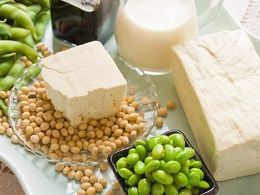Diabetic Neuropathic Pain Improved with Vegan Diet
Diabetic neuropathic pain can be controlled with a low-fat vegan diet, according to research presented at the American Association of Diabetic Educators Annual Meeting.

A change in diet may improve diabetic neuropathy pain, according to a controlled study of patients with type 2 diabetes presented at the American Association of Diabetes Educators Annual Meeting in Orlando, FL.
A team of researchers, led by Anne E. Bunner, PhD, from the Physicians Committee for Responsible Medicine in Washington, DC, randomized patients (mean age = 57) into dietary groups: one group followed a low-fat vegan diet, and the participants in the other followed their regular diet for 20 weeks. The vegan diet participants were more likely to lose weight, have reductions in pain scores, and have neurologic improvements in their foot neuropathy.
The low-fat vegan diet group experienced mean changes in scores for hemoglobin A1C, Quality of Life, and Neuropathy Total Symptoms. However, these scores did not appear statistically significant over the scores of the control group.
The diet group participants were told to eat only plant foods, and to limit intake of oils, nuts, and fatty foods, which were limited to 3 g per serving or 20 to 30 g per day. High-fiber foods were restricted to 40 g per day. Patients were also told to limit intake of low-glycemic index foods. However, no limit was placed on portions for the participants in the low-fat vegan diet group. The participants in this group also took part in weekly nutritional education classes, social support groups, cooking demonstrations, and food product sampling activities.
The greatest improvements came from the control group, who were instructed to make no dietary overhauls or changes during the 20-week study period, while the changes in the diet group were not statistically significant. Positive changes were measured by visual analogue scale.
Both groups used vitamin B12 supplements, which Bunner said may explain the improvements seen by the control group. The researchers noted none of the participants in the study had a vitamin B12 deficiency at baseline, though diabetic neuropathic pain is associated with a B12 deficiency.
From the diet group, 4 of 17 patients were able to reduce their respective dosages of lipid-lowering medications, while only one had to increase the dose. No control group participant decreased lipid-lowering medication doses, but 3 of 18 had to increase their doses.
Ten of the diet group’s 17 participants saw reductions in their diabetes medications, while 2 of the 18 in the control group reduced their diabetes medication doses.
Most patients (13 out of 17) were fully compliant with the vegan diet. Eight of those 13 participants complied with the low-fat instructions at both the 10- and 20-week check-in assessments, while 3 were compliant with the instructions at one of the assessments. Two patients followed the low-fat instructions, but not the vegan instructions, and 2 patients were noncompliant in both diet restrictions. One patient did not complete the study.
Bunner said the team’s findings confirm prior research which showed 81% of patients in an uncontrolled study saw some pain relief.
The research team also conducted a meta analysis of 5 prior studies surrounding type 2 diabetes patients. The 16,000-patient review showed strict glucose control can reduce the severity of diabetic neuropathic pain, though it does not eliminate the pain entirely.